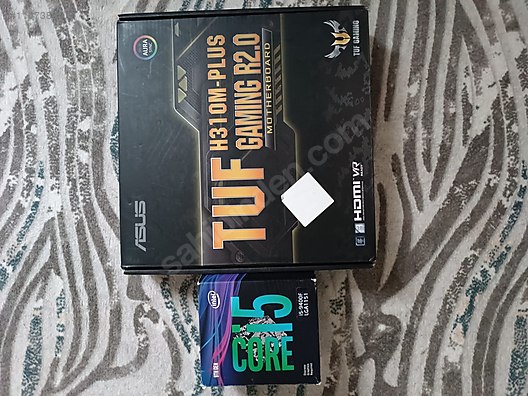
Asus TUF H310M-Plus Gaming Anakart - Asus TUF H310M-Plus Gaming Anakart Uyumlu Ürünler / Bilendenal.com Doğru ürünü bilendenal

ASUS Tuf Gaming B560M-Plus Intel B560 Lga1200 DDR4 5000 DP Hdmı 2x M2 Usb3.2 Aura Rgb 2.5Gb mATX 128GB'a kadar ram desteği, İki Yönlü AI Ses Engelleyici Mic. : Amazon.com.tr: Bilgisayar

Asus TUF H310M-Plus Gaming R2.0 Intel H310 Soket 1151 DDR4 2666MHz mATX Gaming (Oyuncu) Anakart - incehesap.com

Asus TUF H310M-PLUS GAMING Intel LGA1151 DDR4 Micro ATX Anakart Fiyatları, Özellikleri ve Yorumları | En Ucuzu Akakçe

ASUS Tuf H310m-plus Gamıng R2.0 Intel H310 Lga1151 Ddr4 2666 Hdmı Dvı M2 Usb3.1 Aura Rgb Matx Fiyatı, Yorumları - Trendyol

Asus Tuf H310m Plus Gaming R2.0 + İ5 9400f - Anakart ve Tüm Masaüstü Bilgisayar Parçaları sahibinden.com'da - 1107386972

Asus tuf gaming h310m plus gamıng r2.0 Anakart - Anakart ve Tüm Masaüstü Bilgisayar Parçaları sahibinden.com'da - 1150049059

ASUS Tuf H310M-Plus Gaming R2.0 Intel H310 Lga1151 DDR4 2666 Hdmı Dvı M2 Usb3.1 Aura Rgb mATX : Amazon.com.tr: Bilgisayar

Asus TUF H310M-Plus Gaming R2.0 Intel H310 Soket 1151 DDR4 2666MHz mATX Gaming (Oyuncu) Anakart - incehesap.com

Asus TUF H310M-Plus Gaming R2.0 Intel H310 2666 MHz DDR4 Soket 1151 mATX Anakart Fiyatları ve Özellikleri















